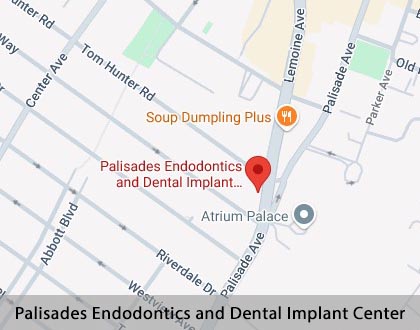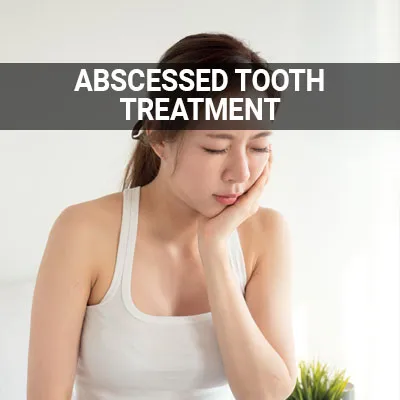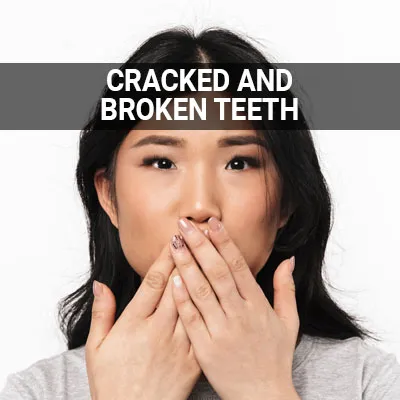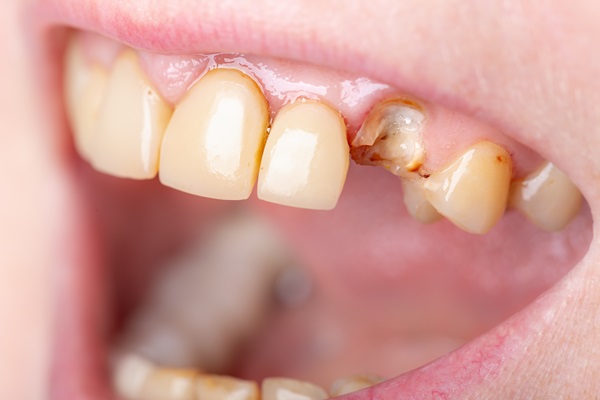Do I Need a Root Canal? Fort Lee, NJ
A root canal involves removing an infection or decay from inside a tooth. An endodontist specializes in root canal treatment and can determine if you need a root canal. An endodontist will treat the infection while relieving pain and other symptoms. Our team ensures patients are informed and comfortable through the whole process.
Do you think you may need a root canal? We can help. Root canal therapy is available at Palisades Endodontics and Dental Implant Center in Fort Lee and the surrounding area. Call us at (201) 877-1190 to schedule an appointment.
The Root Canal Procedure
A root canal is a standard dental procedure. Its purpose is to remove infection or decay from a tooth's pulp and roots. A root canal typically involves two office visits.
During the first appointment, the patient receives X-rays of the affected tooth and a local anesthetic. After the patient is completely numb, the endodontist removes the infected pulp and the nerve from the inside of the tooth and the root. After disinfecting and cleaning the inside of the tooth, the practitioner fills the tooth and seals it with a temporary filling.
Following the recovery process, the patient typically returns to their regular dentist to receive a permanent crown over the treated tooth. Overall, a root canal prevents additional infection or decay. It also allows a patient to keep the original tooth.
“Overall, a root canal prevents additional infection or decay.”
Why It Is Done
A root canal is necessary when there is an infection, inflammation, or deadening of tissue in the pulp. A root canal cleans out the infection to prevent more decay. The most common reasons for a root canal include:
- Crack or fracture
- Deep cavity
- Injury
- Pimples, darkening, or swelling on the gums
- Problems with a previous dental procedure, such as a filling
- Worn enamel that allows bacteria, germs, and other substances to enter the pulp
“A root canal is necessary when there is an infection, inflammation, or deadening of tissue in the pulp.”
Signs You Need a Root Canal
Patients who experience pain when chewing or biting might think they need a root canal. The only way to know for sure is to make a dental appointment. In some cases, tooth pain might come from problems not requiring the procedure, such as:
- An impacted tooth with an infection
- Cavity
- Gum disease
- Filling damage
- Pain from a sinus infection
A patient typically receives a root canal for persistent tooth pain. While a tooth might only hurt intermittently, the pain always comes back. It can occur in the tooth, face, jaw, or neighboring teeth. Other symptoms that signal the need for a root canal include chipping or similar tooth damage, tooth discoloration from infection or trauma, and sensitivity to hot or cold food or drink. Swelling, tenderness or a pimple in the gums surrounding the affected tooth is another sign a root canal may be necessary.
“A patient typically receives a root canal for persistent tooth pain.”
Check out what others are saying about our dental services on Yelp: Do I Need a Root Canal? in Fort Lee, NJ
Why to Not Put a Root Canal Off
Patients with persistent pain, tooth discoloration, or gum swelling should see their provider as soon as possible. Putting off the procedure only allows the problem to get worse. The earlier a patient can get treatment, the more likely they will keep their original tooth.
Although a root canal might sound painful, the procedure brings relief from pain and discomfort. It also prevents the infection from getting worse and spreading throughout the body. A patient may notice the pain subside and try to cancel the root canal appointment. However, this is not a good idea. The pain subsiding is a sign the nerve is dead, but the infection is still present and will spread if the tooth is not treated.
“The earlier a patient can get treatment, the more likely they can keep their original tooth.”
Questions Answered on This Page
Q. What happens during a root canal?
Q. Why do endodontists perform root canals?
Q. What are signs that someone needs a root canal?
Q. What could happen if I put off a root canal?
Q. How can I avoid getting a root canal?
People Also Ask
Q. What can cause a tooth infection? What are the symptoms of a tooth infection?
Q. What is an abscessed tooth?
Q. What is the main cause of a toothache?
Q. How does an endodontist diagnose a cracked or broken tooth?
How to Prevent Deep Tooth Decay
While root canals are relatively effective in treating decay, most would prefer not to have them in the first place. Oral hygiene habits like flossing once a day and brushing twice a day will help preserve tooth health. Other healthy habits include dental checkups and cleanings every six months, limiting refined carbohydrates and sugary foods, and using fluoride toothpaste and ADA-approved mouthwash.
“Oral hygiene habits like flossing once a day and brushing twice a day will help preserve tooth health.”
Frequently Asked Questions
Q. What is an endodontist?
A. A dentist can become an endodontist with two or more years of specialized training beyond dental school. An endodontist has additional skills in diagnosing and treating tooth pain. They specialize in performing root canals and other procedures that treat tooth pulp.
Q. What do I do after a root canal?
A. Root canal aftercare is essential to the healing process. Because patients will still feel numb after the procedure, they should avoid chewing or eating anything until the anesthesia completely wears off. They should also follow all instructions for taking antibiotics or other pain medications.
Q. How much does a root canal hurt?
A. Many people think root canals are scary and painful procedures. This is largely a myth. Advancements in dental care make root canals seem like little more than a deep cavity filling. Patients receive local anesthesia and can take medication to relieve post-procedure pain and swelling.
Q. Does a root canal always require a crown?
A. Although crown placement is a regular part of a root canal, it is not always the case. Endodontists generally use crowns instead of standard fillings for molars and other back teeth because a root canal weakens a tooth. However, front teeth might just get a composite filling if the tooth is strong enough.
Q. How Can I tell if there is a problem with my root canal?
A. Failed root canals are rare, but the do happen despite the best of efforts. There should be some tenderness and discomfort after a root canal, but that should resolve in a few days. If the tenderness, swelling, or pain increases, you notice a pimple-like lesion near the treated area, the treated tooth feels loose, or your pre-root canal symptoms seem to return, call our office right away. Do not be alarmed. Our team is well equipped to handle any complications that may arise.
Start Feeling Better – Visit Us Today
By visiting us as soon as possible, our team can help get you the professional treatment you need. Instead of waiting around and allowing the symptoms to get worse, we can provide you with treatment options.
Definitions
Learn More About Root Canals
A root canal is a relatively painless treatment that can save an infected tooth. Nevertheless, preventing deep tooth decay is the best way to avoid root canals. Despite maintaining good oral hygiene, patients should know the symptoms of when the procedure is necessary.
Contact Palisades Endodontics and Dental Implant Center in Fort Lee to learn more about root canals. Call us at 201-877-1190 for more information or to schedule an appointment.
Helpful Related Links
- American Association of Endodontists. What is a Root Canal? 2024
- Cleveland Clinic. Root Canal. 2024
- Delta Dental. When Do You Need a Root Canal? 2024
- Healthline. Root Canal: Purpose, Procedure, and Risks. 2024
- Mayo Clinic. Overview of root canal treatment. 2024
- Medical News Today. What to expect from root canal treatment. 2024
- Mouth Healthy. Root Canals. 2024
- WebMD. An Overview of Root Canals. 2024
About our business and website security
- Palisades Endodontics and Dental Implant Center was established in 1997.
- We accept the following payment methods: American Express, Cash, Check, Discover, MasterCard, and Visa
- We serve patients from the following counties: Bergen County
- We serve patients from the following cities: Fort Lee, Palisades Park, Leonia, Edgewater, Ridgefield, Englewood, Tenafly, and Alpine
- National Provider Identifier Database (1124100102). View NPI Registry Information
- Norton Safe Web. View Details
- Trend Micro Site Safety Center. View Details
Back to top of Do I Need a Root Canal?










